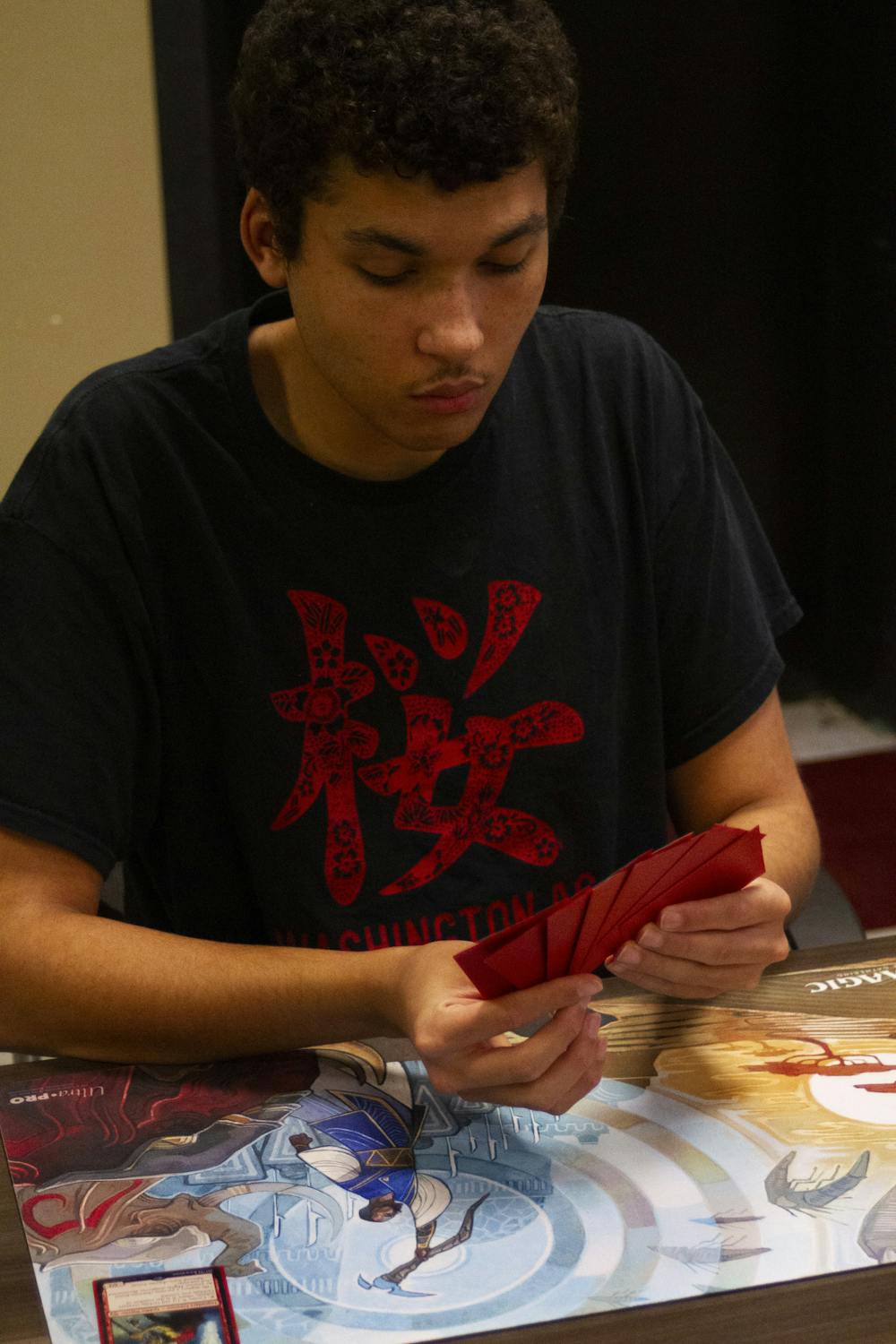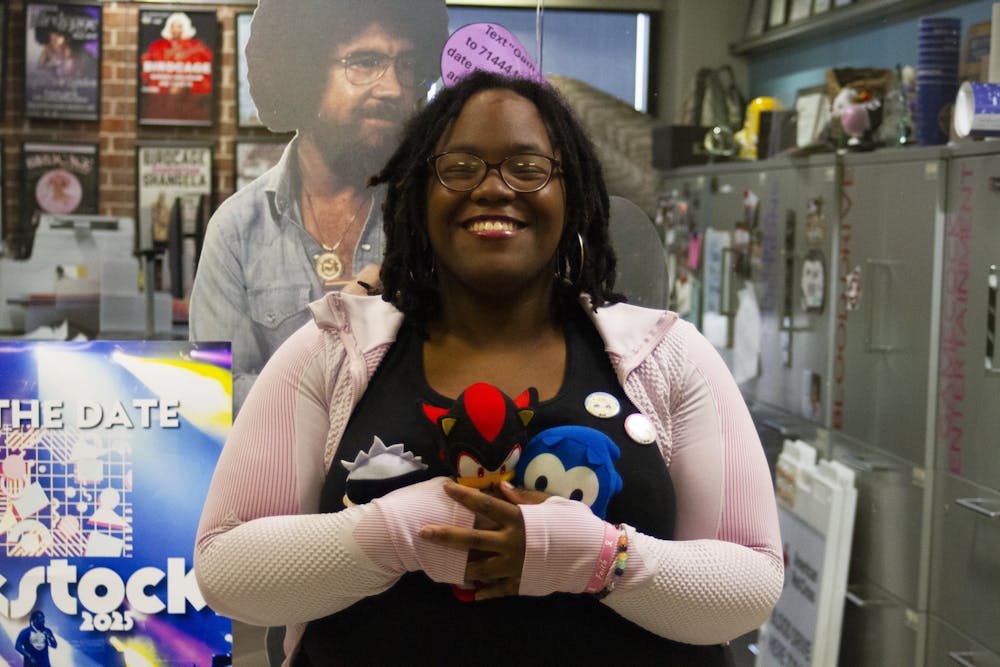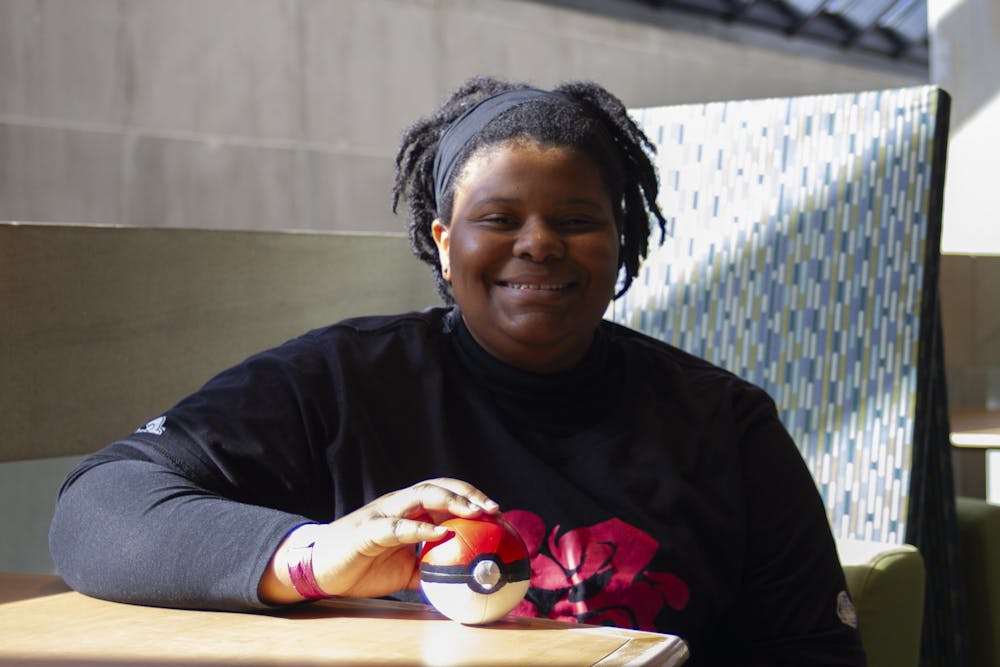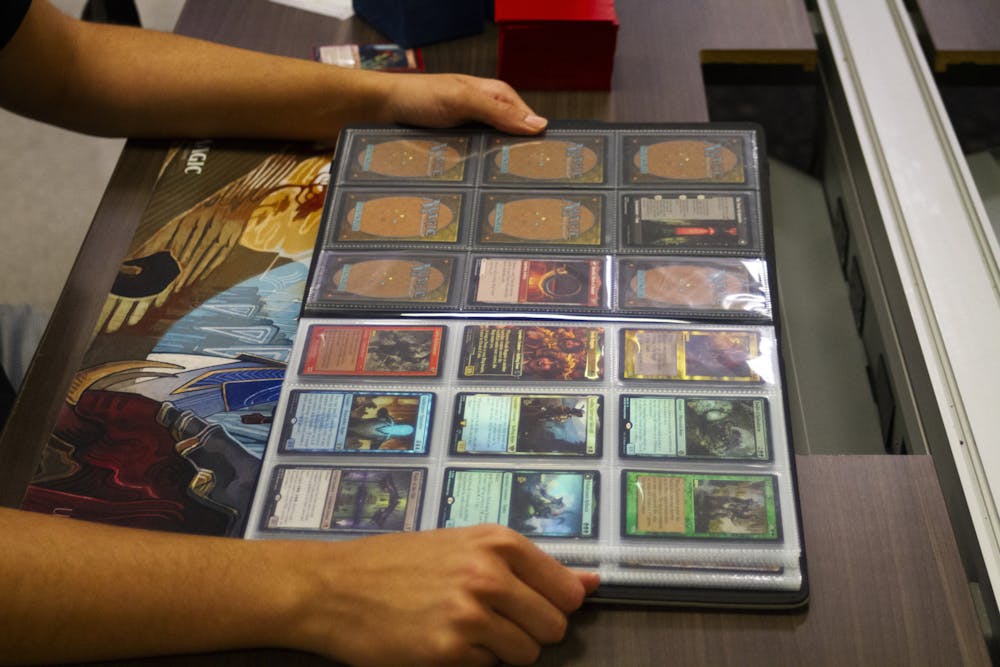From Marvel blockbusters, Star Wars spin-offs and the surge of Dungeons & Dragons campaigns, what was once niche “nerd” territory has exploded into mainstream obsession. Nerd culture is no longer hiding behind thick glasses; it’s rocking the spotlight, with everyone from influencers to athletes embracing it. But how did we go from locker-room jokes to Comic-Con clout? And what does this cultural shift mean for the future of fandoms?
USC students are no exception. Whether it’s late-night D&D sessions in dorm rooms or students lining up for the latest superhero flick, nerd culture is alive and thriving on campus. The communities that once felt niche are now at the forefront of student life, proving that the era of the nerd is far from over it’s just getting started.
For junior chemistry major Bryson Wood, nerd culture is more than just a hobby; it’s a community. His favorite? Magic: The Gathering, a strategic collectible card game where players build decks and battle using spells, creatures and artifacts.

Wood’s passion for Magic started back in middle school when a close friend introduced him to the game. At first, he found it overwhelming. "I don’t wanna do homework to play a game,” he recalled telling his friend, who suggested he watch an hour-long video on the rules before playing.
"But then we tried it,” Wood continued. “I liked it back then, but I didn’t really stick with it, so I kind of dropped it."
It wasn’t until college that Wood rediscovered his love for the game. When a friend expressed interest in playing, he decided to give it another shot. This time, the spark stuck, reigniting his enthusiasm for the Magic community.
What keeps Wood invested in the game is the creativity and strategy behind deck-building. “I really enjoy the deck-building side of things,” he explains. “Especially like Commander, but also in limited formats—whenever a new set comes out, you buy a few packs and make a deck with the cards you open. I really enjoy that environment too because you have to work with what you’re given, and I enjoy that.”
Beyond the gameplay, Wood believes the rise of nerd culture stems from growing societal acceptance. “I think society as a whole has become more tolerant to these ideas that have existed largely on the sidelines," he said.
He credits this shift in part, to public figures openly embracing their nerdy sides. From rapper Megan Thee Stallion cosplaying anime characters to Olympic track star Noah Lyles posing with his Yu-Gi-Oh! cards before a race, even celebrities are proving that nerd culture is for everyone.
Sophomore film major Kashia Stewart has always embraced her inner nerd. From "Sonic the Hedgehog" to anime and VTubers, her interests span across a variety of genres. Her father played a key role in introducing her to these worlds, sparking a love that would only grow over time.
“He used to own this Dragon Ball box set,” Stewart said. “And I was like, 'Okay, this looks cool, I guess,' and I was really wanting to prove that I was cool by watching TV shows that my friends didn’t watch, you know? So I was watching 'Dragon Ball,' and I was like, 'This is really good.'”

But her fandom journey didn’t stop with TV shows. Stewart’s love for "Sonic the Hedgehog" began after her dad brought home a PlayStation. “Then he got us a PlayStation, so I started playing 'Sonic,'” she said. “And here we are.”
Like many others, Stewart noticed a surge of online engagement in nerd communities during the 2020 pandemic lockdowns. For her, this marked a turning point in how these fandoms grew and interacted.
“I remember around the time that the pandemic happened, a lot of people who you wouldn’t see online started to get online and get involved in fandoms,” Stewart explained. “Tumblr particularly had a massive influx.” With people stuck at home, many turned to the internet for entertainment and connection, finding solace in shows, games and fandoms they might not have explored otherwise. This created a boom in popularity for nerd culture, but it also brought new challenges.
“There was no way to really meet people in person and connect about the things that you like without fear of ridicule,” Stewart said. “But then in the same way, those people who did ridicule nerds back then have now joined the spaces where nerds exist. And so it’s now creating more friction within communities.”
Stewart notes a common frustration in these online spaces: newcomers who join nerd communities but then criticize the very behaviors that have always been part of them. "Now there’s people who are like, ‘I know that this is weird and you’re being weird,’ but they’re in an obviously weird space," Stewart said.
Even with these challenges, Stewart appreciates seeing more people embrace nerdy media and the communities that come with it. “If you like something and you really, really wholeheartedly like it, well then I say there's no reason why you shouldn't enjoy it,” she said.
For junior environmental studies major Lauren Center, video games have always been a source of comfort and inspiration. Her love for gaming started young, with family at the center of her early experiences.

“I guess my dad and my mom always liked playing video games when we were younger," Center said. "Even after they stopped playing video games, I just kept playing.”
Center believes nerd culture resonates because of its ability to create immersive escapes. “I guess people need an escape” she said. “There's a lot of nerdy things that have an appeal to nostalgia or storytelling or both. I think that’s kinda where the appeal comes from.”
Her experience with "The Legend of Zelda" perfectly illustrates this. The long-running fantasy adventure series is known for its rich storytelling and "Breath of the Wild," its open-world installment, captivated players with its vast landscapes and deep lore. "I like 'The Legend of Zelda' a lot because of the story," Center shared. "Like, I wasn’t nostalgic for it. I didn’t really get into the series until 2020."
But her connection to the series grew deep enough to leave a permanent mark. “I have a tattoo of it on me now,” Center said. “It’s like the game got me through quarantine, and the story was pretty good.”
Nerd culture’s rise has blurred the lines between mainstream and niche, turning what was once a subculture into the new cool. Whether it’s reconnecting with childhood favorites, escaping into new worlds or finding community online, this movement is more than just a trend. But as fandoms grow, so do their challenges like navigating friction between new fans and longtime enthusiasts. Still the overwhelming embrace of nerd culture suggests a promising future. Today, being a nerd isn’t about hiding in the shadows; it’s about celebrating the things you love, unapologetically.
So grab your dice, your favorite console or your anime queue. The world’s a little nerdier now, and that’s something worth geeking out about.



